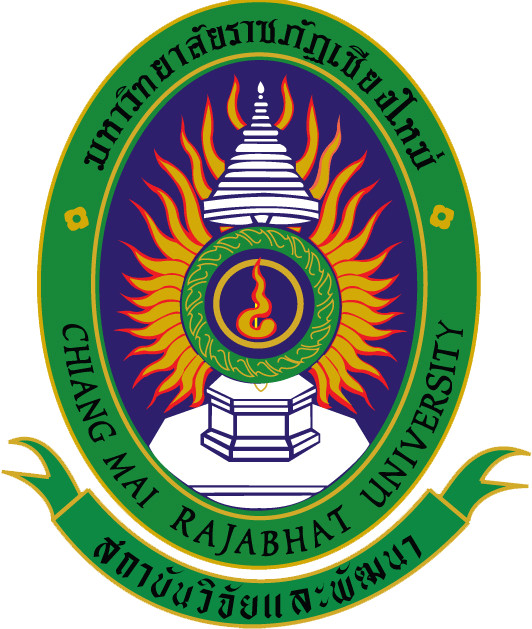
ระบบสารสนเทศงานวิจัย สถาบันวิจัยและพัฒนา มหาวิทยาลัยราชภัฏเชียงใหม่
Research Information System(RIS)
การออกแบบกระบวนการเรียนรู้รายวิชาทางวิทยาศาสตร์ระดับอุดมศึกษา เพื่อพัฒนาผลการเรียนรู้ด้านความรู้ ด้านทักษะทางปัญญา และด้านทักษะการวิเคราะห์เชิงตัวเลขและการสื่อสาร
รองศาสตราจารย์ ดร.วิไลพร ลักษมีวาณิชย์
คณะวิทยาศาสตร์และเทคโนโลยี
คำสำคัญ :
เลขทะเบียน :
599-58-SCI-MUA
บทคัดย่อ
งานวิจัยนี้มีวัตถุประสงค์เพื่อออกแบบกระบวนการเรียนรู้เพื่อพัฒนาความรู้ ทักษะทางปัญญา ทักษะการวิเคราะห์เชิงตัวเลขและการสื่อสารแก่นักศึกษา และให้ได้มาซึ่งข้อมูลพัฒนาการของนักศึกษาทั้งในภาพรวมและรายบุคคล รายวิชาตัวอย่างทางวิทยาศาสตร์ที่เลือกแบบเจาะจงมีจานวนทั้งสิ้น 9 รายวิชา แยกเป็นประเภทบรรยายและปฏิบัติการเป็นจานวน 4 และ 5 รายวิชา ตามลาดับ มีจานวนตัวอย่างนักศึกษาทั้งหมด 204 คน กิจกรรมที่ใช้ในการวัดและประเมินผลการเรียนรู้ได้แก่ การทาแบบฝึกหัด การทารายงาน และการสอบ ผลการวิจัยพบว่าการจัดการเรียนรู้แบบบรรยาย การอภิปราย การทบทวนเนื้อหา รวมถึงการสอนแบบปฏิบัติการ ร่วมกับการฝึกทาอย่างต่อเนื่องและการให้ข้อมูลสะท้อนกลับ เป็นวิธีการที่สามารถพัฒนาทักษะการสื่อสารด้วยการเขียนให้ดีขึ้นอย่างต่อเนื่องได้ เช่นผลการเรียนรู้ของรายวิชาปฏิบัติการกลศาสตร์และอุณหพลศาสตร์ โดยพบว่านักศึกษามีพัฒนาการจากระดับควรปรับปรุง เป็นระดับดีเยี่ยมได้ พบว่านักศึกษาร้อยละ 30 ที่อยู่ในระดับควรปรับปรุงในครั้งแรก สามารถพัฒนาเป็นระดับดีมากได้ในครั้งที่ 8 โดยมีคะแนนเฉลี่ยเพิ่มขึ้นจากร้อยละ 45 เป็นร้อยละ 69 ทั้งนี้การให้นักศึกษาแก้ไขผลงานจนถูกต้องครบถ้วนสมบูรณ์ โดยห้ามมิให้ลอกผลงานของเพื่อน เป็นปัจจัยสาคัญที่ทาให้นักศึกษามีความตั้งใจและพยายามทางานครั้งต่อไป สาหรับผลการเรียนรู้ด้านความรู้และด้านทักษะทางปัญญา ที่วัดจากการฝึกทาแบบฝึกหัดซ้า และต่อเนื่องในเนื้อหาวิชาที่แตกต่างกันไป ไม่แสดงว่ามีพัฒนาการการเรียนรู้เพิ่มขึ้น การวิเคราะห์ผลการเรียนรู้เป็นรายบุคคล พบว่า (1) ความสัมพันธ์เชิงลาดเอียงระหว่างคะแนนสอบสอบกลางภาคและปลายภาค ด้านความรู้ มีความสอดคล้องกัน 7 รายวิชา (จาก 9 รายวิชา) ในขณะที่ด้านทักษะทางปัญ ญาและด้านการคานวณ พบเพียง 4 รายวิชา (2) ความสัมพันธ์ระหว่างคะแนนเก็บและคะแนนสอบของผลการเรียนรู้ ไม่สอดคล้องกัน ยกเว้น 1 รายวิชา ที่ใช้เครื่องมือในการเก็บข้อมูลคือแบบฝึกหัดและข้อสอบวัดผลมีความคล้ายกัน และ (3) ความสัมพันธ์ของผลการเรียนรู้สาหรับคู่ของรายวิชาบรรยายและรายวิชาปฏิบัติการที่มีเนื้อหาคล้ายกันจานวน 4 คู่ พบว่า มีความสัมพันธ์ระดับสูง ปานกลาง และต่า จานวน 2 1 และ 1 คู่ ตามลาดับ ความสัมพันธ์ของคะแนนในรายวิชาบรรยายและรายวิชาปฏิบัติการอาจมีหรือไม่มีความสัมพันธ์กันได้ ขึ้นกับเครื่องมือและเกณฑ์ที่ใช้ในการวัดและประเมินผล ที่มีความแตกต่างกันตามธรรมชาติของรายวิชา รวมถึงความถนัดของนักศึกษาในการเรียนรู้ในรายวิชาบรรยายหรือความชอบในการทดลองในรายวิชาปฏิบัติการ
Abstract
This research aimed to design a learning process to develop knowledge, cognitive skills and numerical analysis and communication skills of the students, and to obtain information on the development of students as a whole and individually. Nine scientific sample courses of four lectures and five laboratory courses were purposively selected. There were 204 sample students. Three main activities for student’s assessments were exercise, report and test. This research showed an improvement on writing communication skills since the continuously combination of the lecture, the discussion, the subject review, the experiment, the ongoing training and feedback techniques were used. Such as the learning outcomes of the course mechanics and thermodynamics, the students' development level was clearly seen up to the excellent. Thirty percent of the students, having the improved level in the first exercise, can develop into a very good level in the eighth exercise, showing an increased average score from 45% to 69 %. The students were required to complete the editing work by prohibiting plagiarism of friends. This was an important factor that makes the student intends to try and work the next time. On the other hand, clearly development of knowledge and intellectual skills, based on continuously practicing exercises, wasn’t seen. This might course by the changing of unseen topics during each exercise. The individual student learning outcome analysis found (1) better relation of knowledge on midterm and final test scores on 7 courses. While the cognitive skills and the calculations were only four courses that are consistent. (2) The relationship between the formative scores and the test scores of each aspect of learning was consistent, when the tools used in data collection exercises and tests were similar measure. Therefore, only one out of eight courses was consistent. (3) The learning outcomes relationship for four pairs of lectures and laboratory courses, having corresponding content, showed the high, medium and low related levels of 2, 1 and 1 pair, respectively. The relationship of the lectures and laboratory courses may or may not have a relationship. That based on the tools and criteria used in the evaluation, which were different depending on the course natural. Additional factors for this relation can be involved the student’s ability to learn in lecture courses or inclination to experiment in laboratory courses.
ไฟล์งานวิจัย
352 05 ก.พ. 2561
สำนักงานคณะกรรมการการอุดมศึกษา (สกอ.)
328 ถ.ศรีอยุธยา แขวงทุ่งพญาไท เขตราชเทวี กรุงเทพฯ 10400
0-2610-5200
pr_mua@mua.go.th